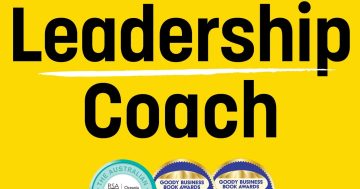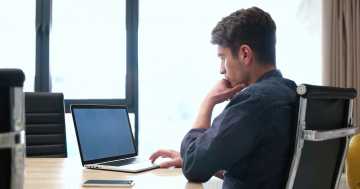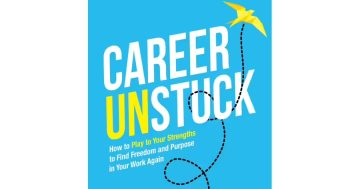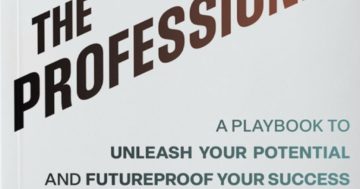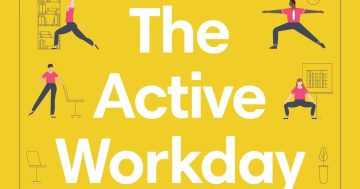Laura Small* says that while we have gained much from new workplace freedoms, some essential rules for behaviour have been lost along the way.
 A generation ago, the workplace was a formal situation — men wore coats and ties, women wore stockings and heels, and meetings were conducted at giant, imposing tables made of dark wood.
A generation ago, the workplace was a formal situation — men wore coats and ties, women wore stockings and heels, and meetings were conducted at giant, imposing tables made of dark wood.
Employees referred to their bosses as “sir,” and generally kept to themselves.
(Of course, there was rampant misogyny, harassment, three martini lunches — those parts tend to get left out.)
Fortunately, the workplace has evolved into a place where self-expression is welcomed.
People are encouraged to bring their “whole selves” to the office, which may include a furry friend, a skateboard and more.
We have deliberately blurred the lines between the professional and the personal, and made the work “you” and the real “you” one and the same.
All of this authenticity is great.
It has helped us be more efficient and to bring different voices into the workplace, some of whom felt limited by, if not outright barred from, traditional work constructs of 30 or 40 years ago.
So it’s great, and right.
Right?
Yes, and no.
As much as we have gained from new workplace freedoms, there is something that has been lost as well.
And it’s not to be found by returning to inappropriately formal or limiting workplace expectations, but by taking better care of the ones we have now.
Too many people (managers and employees alike) view this new freedom of expression as a professional all-access pass.
Bringing their whole selves to work means being utterly uninhibited in every thought they share and behaviour they choose to indulge in.
“This is who I am!” they shout as they berate a junior staff member.
“I’m just expressing myself,” they protest when cautioned about colourful language or oversharing of personal details.
We’ve bent over backwards to encourage authenticity, and had that invitation abused by employees who are either too inexperienced or too unprofessional to know how to manage it.
Authenticity is a responsibility.
When we say that you should be your “whole self,” we don’t mean the one who drinks too much at the holiday party and passes out in a locked bathroom stall.
Or the one who emails a picture of their new (and intimately placed) piercing to their entire team.
During the work day.
On company email.
Your workplace persona is, in fact, still a construct — it’s the embodiment of the traits and abilities that you want people to associate with you.
And just as it’s not ideal not to be your “real” self at work, you can do more damage by being your NSFW (not safe for work) self in the professional sphere, too.
Having trouble with those distinctions? Here are a few tips:
Use the Grandma test
If you wouldn’t make the remark, tell the joke, or relate the anecdote to your sweet and proper grandmother, then you probably shouldn’t be sharing it at work, either.
(Consider this one carefully — if your grandma danced naked in the rain at Woodstock, you may need a different arbiter of propriety.)
Consider the “10-10-10” rule
Evaluate your behaviour and ask yourself whether you’d like to be remembered for acting this way 10 minutes from now, 10 days from now, and 10 years from now.
If you don’t want to be forever remembered as the guy who cut his forehead open during an aggressive game of office ping pong then consider modulating your behaviour.
Remember Mr Rogers and be a good neighbour
We have to work together in this tiny stacked box of people, sandwiched between layers of plaster and steel.
If you wouldn’t want to share a cubicle with the guy eating leftover salmon at his desk (having just heated it in the office microwave) then maybe don’t do it yourself.
As annoying as you may find the habits of the people around you who are “just being themselves,” awareness that they may find you equally annoying can go a long way.
Being yourself at work is being the BEST version of yourself — the one that other people will want to know and aspire to be like.
So don’t limit yourself, but rather challenge yourself to bring that forward.
* Laura Small is Vice-President and People Director at Rubin Postaer and Associates.
This article first appeared at www.hrdive.com.


